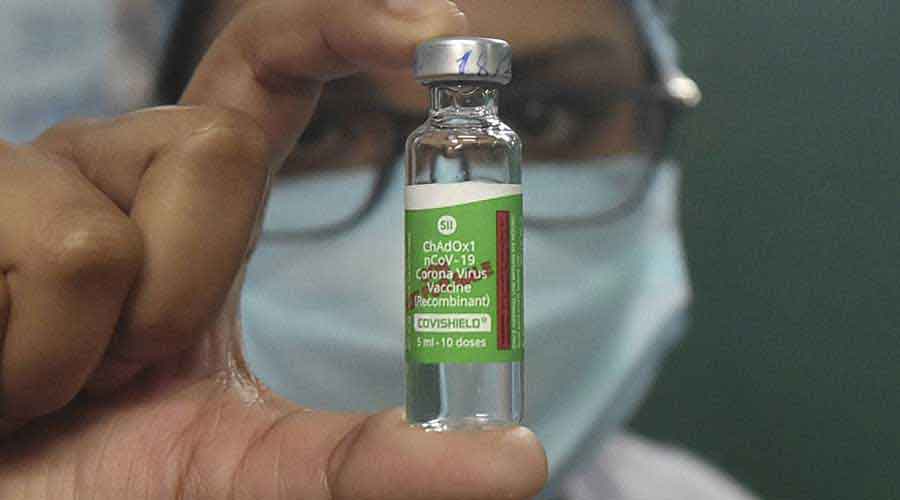India's strong and decisive actions like surveillance at points of entry slowed down the spread of Covid-19 and gave enough time to the country to build public health capacities and infrastructure to effectively manage the pandemic, Union Minister Bharati Pravin Pawar said on Tuesday.
The minister of state for health and family welfare represented India at the World Health Organization-South East Asia Regional Office (WHO-SEARO) through video-conference.
She offered intervention on behalf of India at the ministerial roundtable for the seventy-fourth session of the WHO Regional Committee for South-East Asia.
Pawar also highlighted the key measures and strategies planned to build back better' to achieve Universal Health Care and health related Sustainable Development Goals and to strengthen health system resilience for the future.
Noting that COVID-19 has affected virtually every sphere of life and caused a huge number of deaths, she said the country adopted a proactive, pre-emptive, whole of government, whole of society and people-centric approach to manage the pandemic.
"Our preparedness and response strategies utilised our past experiences of managing public health emergencies and contemporary scientific knowledge about evolving nature of disease to decide requisite public health interventions,” the minister said.
"India's strategy for fighting the pandemic is built on five pillars Test, Track, Treat, Vaccinate and adherence to Covid appropriate behaviour. With a decentralised but unified, whole of government approach, we focused on rapidly creating Covid-dedicated infrastructure and upskilling our healthcare workforce," she said.
Pawar noted that the proactive and bold decisions by India's "strong and decisive leadership" like surveillance at points of entry slowed down the entry and spread of COVID-19 and gave enough time to the country to build public health capacities and infrastructure to effectively manage the pandemic.
Inter-sectoral coordination facilitated by establishing high level inter-ministerial groups and communication with states, other stakeholders and community at large facilitated a jan andolan (people's movement) for managing the pandemic, the minister said.
"Legal and policy provisions like the Epidemic Diseases (Amendment) Act, 2020, and the Disaster Management Act, 2005, already available to the Union and sub-national jurisdictions, provided the enabling framework to operationalise all aspect of pandemic management by clarifying roles, responsibilities while facilitating inter-sectoral coordination as governance from national to local levels," she said.
Further, technical support by the Union government on containment, treatment protocol and all aspects of Covid management ensured a unified response, Pawar added.
Speaking on the human cost of the pandemic, she said realising the indirect impact of COVID-19 especially on the poor and marginalised sections of society, a number of social security measures, including supply of food grains, minimum income support schemes, support for small industries, support for children who have lost their parents due to COVID-19 and other economic measures were taken to mitigate the impact of the pandemic.
On the massive implication of India's development and deployment of vaccines along with amplification of production capacities on global health, Pawar shared the fundamental principles of India's vaccination strategy such as augmenting production of vaccines, prioritising vulnerable groups for vaccination, making efforts in procurement of vaccines from other countries, monitoring vaccinated people for their second dose, as well as providing requisite digital vaccination certificate.
Our National Expert Group on Vaccine Administration for COVID-19 provides guidance on vaccine trials, equitable distribution of vaccine, procurements, financing, delivery mechanisms, prioritisation of population groups etc. and the National Task Force on Vaccine Development supports Research and Development of Drug, Diagnostics and Vaccines for Coronavirus, the minister said.
India utilised the existing infrastructure of the Universal Immunization Programme which was augmented to ensure cold chain maintenance besides managing required logistics of vaccines and syringes, she said.
Pawar added that the capacity building at all level was taken by training more than 7,600 participants at the state level and around 61,500 at the district level apart from training more than 2 lakh vaccinators and 3.9 lakh other vaccination team members.
"To enhance vaccine production, financial support as grant was provided to vaccine manufacturers, advance payment for orders placed, permission for at-risk manufacturing was allowed besides focusing on technology transfer to aid production, the minister said .
The Co-WIN digital platform supported transparent registration and tracking of every beneficiary for COVID-19 vaccination along with real time information on the available stocks of vaccine, their storage temperature, digital certificates, she said.











